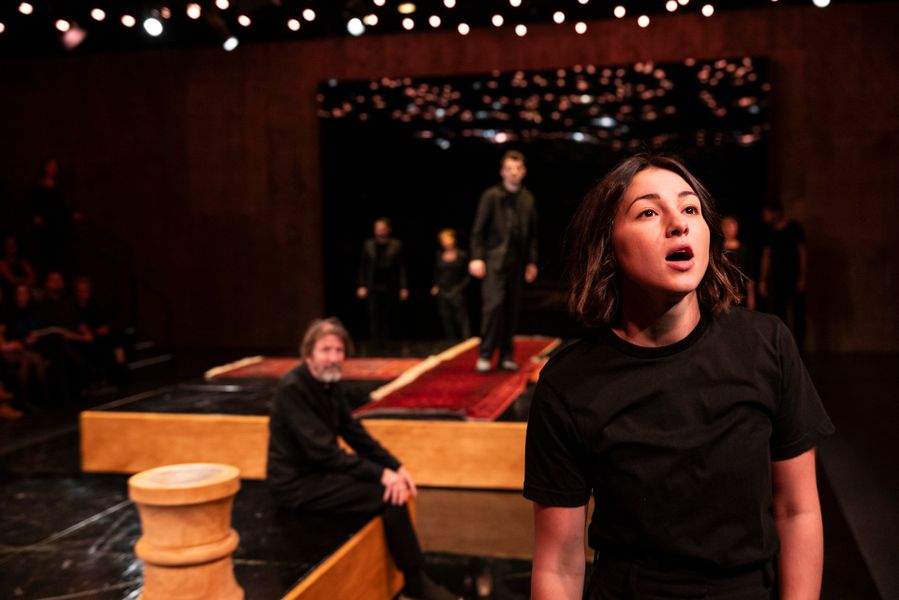
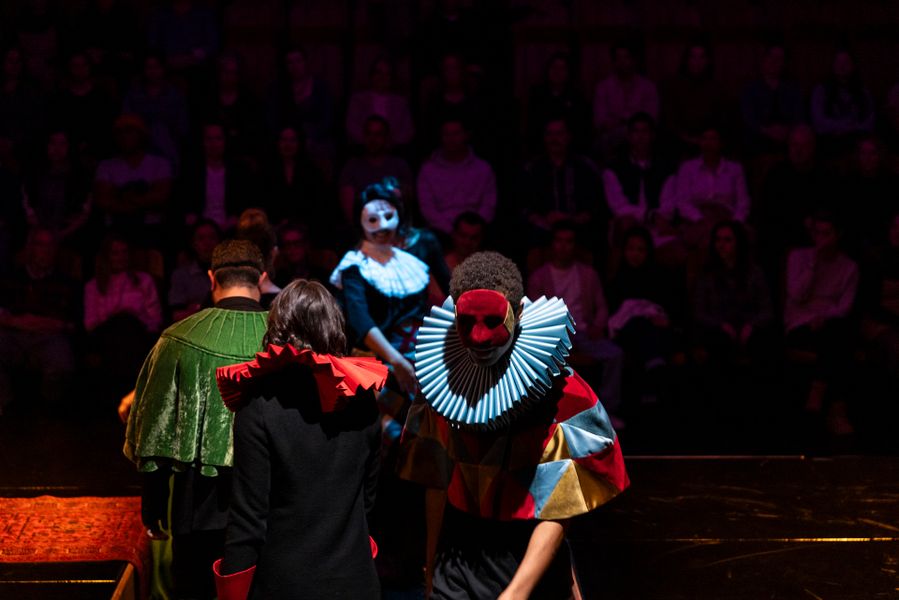
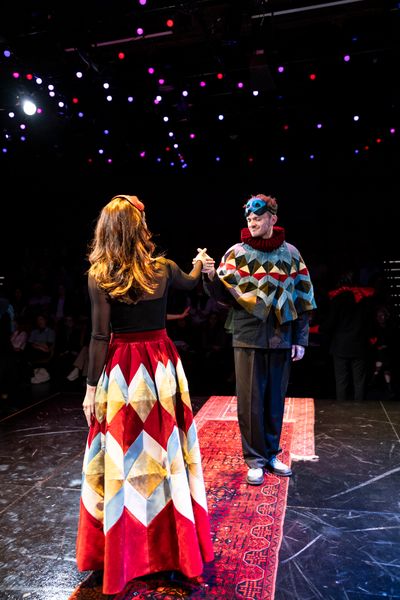
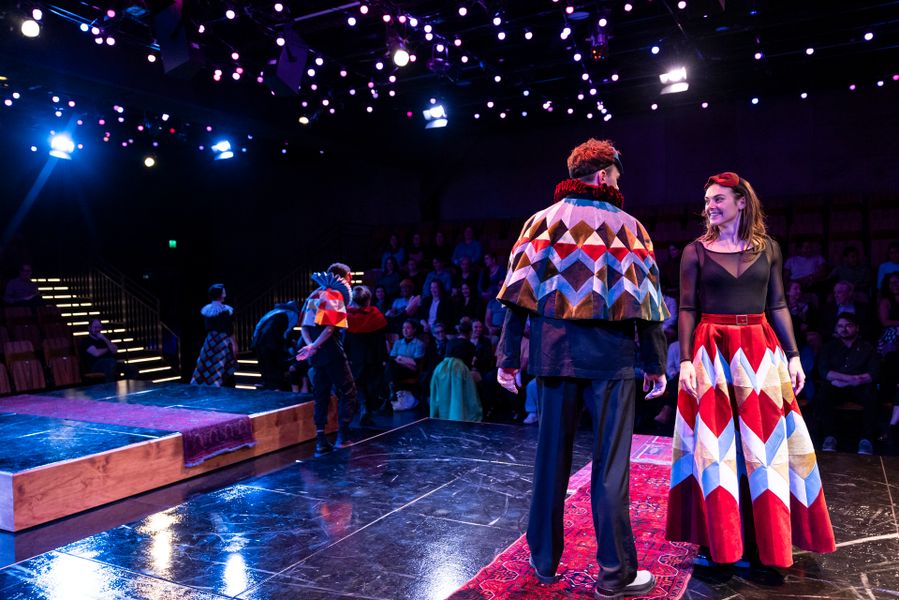

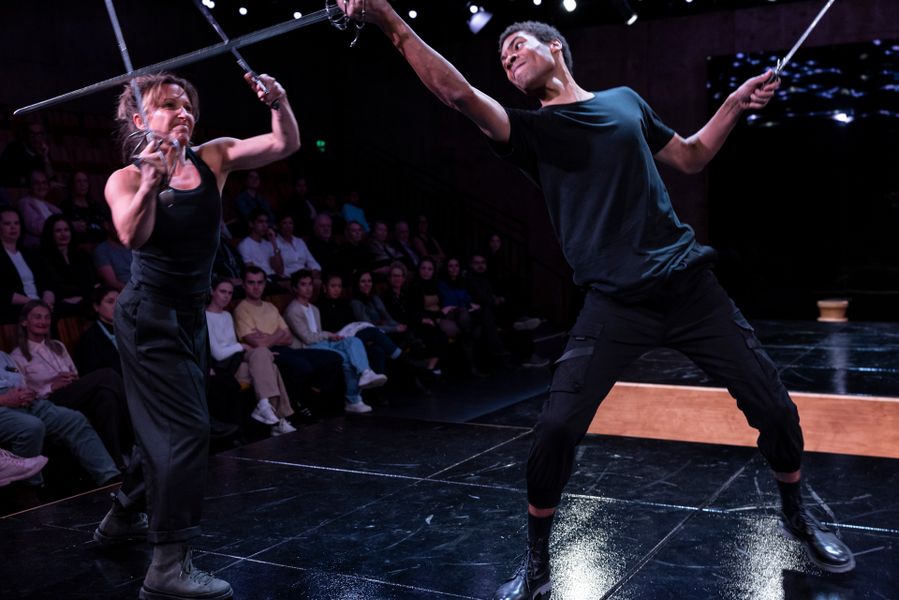
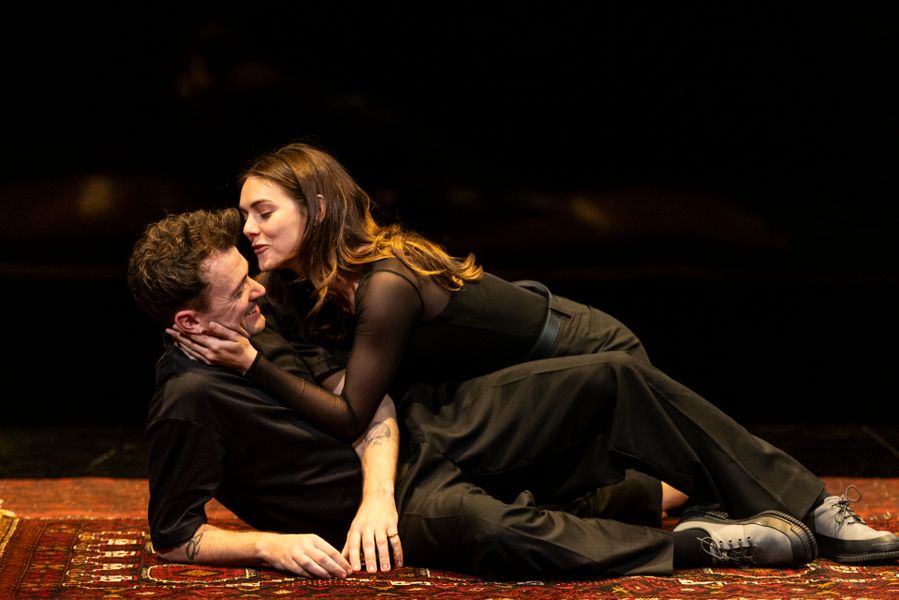

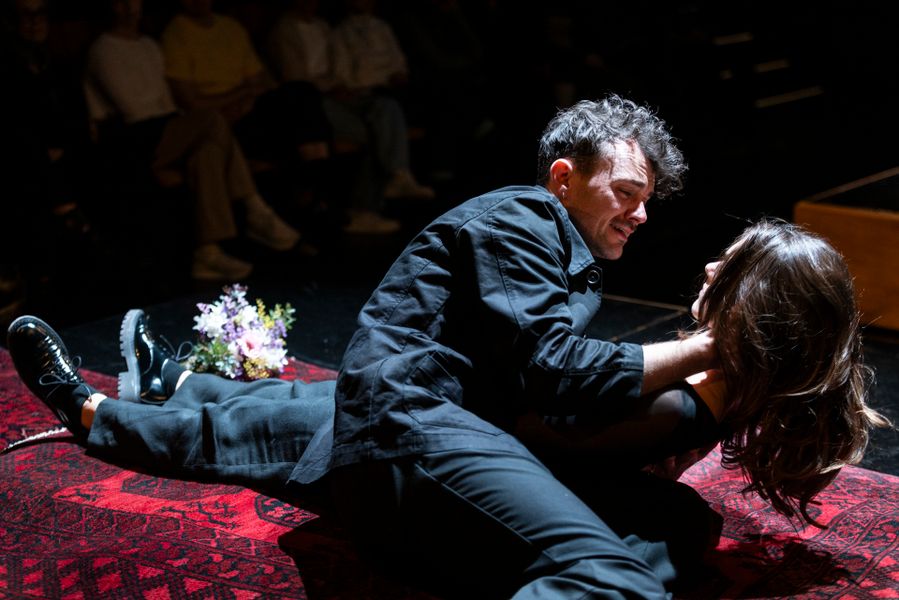

From the pages of our program, read Andy McLean's essay on Romeo and Juliet as he experienced the production from the rehearsal room to stage

Think you already know the most famous love story in the English language? Think again.
Researchers recently published an article in the journal Science that could rewrite the history of kissing. It turns out, humans have been pashing a lot more – and for a lot longer – than historians thought.
Previously overlooked evidence suggests that romantic and sexual kissing was actually practised in some of the earliest Mesopotamian societies, dating back to 2500BC. Moreover, scientists now think that kissing did not originate exclusively in a single region, before spreading elsewhere. Instead, people were probably snogging in multiple ancient cultures over several millennia.
Coincidentally, this research was published in the very same week that rehearsals began for Bell Shakespeare’s new production of Romeo And Juliet – a play that everyone assumes they already know everything about.
We’ve all heard the story before, right? Boy meets girl. Cue: lovelorn poetry and that balcony scene. Cue: sword fights, mix-ups, and that suicide scene. We’ve seen it played out again and again in theatres, movies, musicals, operas, ballets, graphic novels …you name it.
This play is so famous that it’s become shorthand for adolescent love. Just like kissing, everyone thinks they know all the facts about Romeo And Juliet.
But guess what? When Bell Shakespeare’s actors and creatives peered closer at the script, they found it full of unexpected surprises, weird plot twists, and misunderstood characters.
WHAT IF…?
Contrary to popular belief, this is not a black and white story of love versus hate; or good versus evil. Take a second look, and you’ll see grey areas in every character.
Juliet, for example, is often underestimated. She’s assumed to be a saintly, impressionable doll. Whereas in fact, Shakespeare created a fiercely intelligent character who – facing insurmountable odds – makes calculated choices, articulates her feelings, and frequently runs rings around Romeo.
Or how about the other man in Juliet’s life, Paris. Common myth would have us believe that he’s a self-entitled goody two-shoes just doing his duty by agreeing to take Juliet as his bride. But if that were true after Juliet dies, why does he tearfully pledge to keep a “nightly” vigil outside her tomb? And with his last breath, why does he plea for his body to be laid beside Juliet’s? Perhaps Paris is just as besotted with Juliet as Romeo is.
Then there’s Tybalt, who is often assumed to be a one-dimensional, spiteful thug. But if that were true then why – after he dies – is the Capulets’ grief so heartfelt? Perhaps, a few short years before, Tybalt was just a child playing with his “dear-lov’d” cousin, Juliet. Now, swept up in the adults’ vendettas, his young life has been snuffed out.
There’s little doubt that Shakespeare wanted actors and audiences to ask these ‘what if?’ questions. Although we know the lovers are doomed from the start, the playwright constantly teases us with missed opportunities to save them. What if Friar John was not quarantined due to the plague but, instead, reached Romeo in time to deliver news that Juliet had faked her death? What if Capulet and Lady Capulet (Juliet’s parents), and Friar Laurence and the Nurse (Juliet’s surrogate parents), paused and sought other ways to turn “rancour to pure love”, instead of hastily arranging marriages?
Near the end, Juliet even teases us with ‘what if?’ questions of her own. Poised to drink the Friar’s potion, she asks:
What if this mixture do not work at all?
…What if it be a poison?
…How if, when I am laid into the tomb,
I wake before the time that Romeo
Come to redeem me? There’s a fearful point.
Shall I not then be stifled in the vault…









JOIN THE EXPERIMENT
As Bell Shakespeare’s cast and creatives looked ever deeper, they found a much stranger play than you might expect. This is not an archetypical Shakespeare tragedy at all. The first two Acts are like a knockabout comedy until Shakespeare pulls the rug from under us. It’s only when Tybalt and Mercutio die that we’re thrown into the darker space of outright tragedy.
By challenging assumptions and stereotypes about Romeo And Juliet – and embracing the uncertainties – actors and audiences are free to experience new things together. Our suspension of disbelief can constantly shift and re-adjust. One minute we are sitting in a theatre; the next we’re guests at a masked ball. One minute Mercutio fills the room with laughter; the next we are the only confidantes in the world that an anguished teenager can turn to.
This production was conjured up in Bell Shakespeare’s Nutshell in Sydney, a space tailor-made for experimentation. Director Peter Evans has defied convention by casting each actor according to their innate spirit, instead of rigidly casting by age and gender. Designer Anna Tregloan has turned Verona into a place where contemporary and classical elements co-exist; where electric lights festoon the ceiling while Friars and Princes hold sway beneath.
These intriguing choices breathe fresh life into this old play. They remind us that, whether we’re in ancient Mesopotamia, fair Verona, or modern-day Australia, everyone can still learn something new about love.
Andy McLean is a writer who grew up in Stratford-upon-Avon, before following the Bard to London. Unlike Shakespeare, he now lives in Sydney.